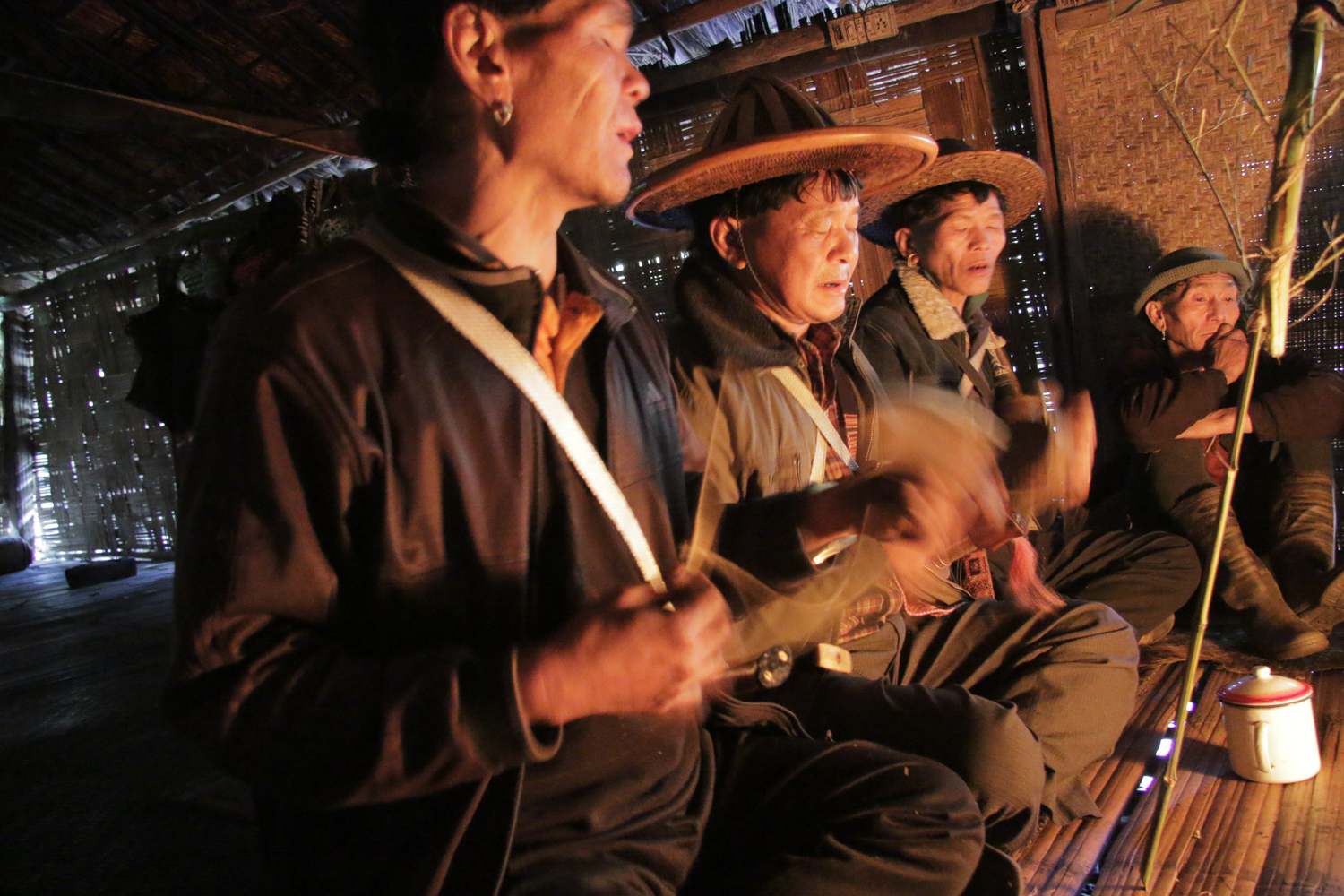Editor’s Note: This article was originally published in Overland Journal’s Winter 2021 Issue.
The road wound steeply through the mountains, hugging the forested flanks in a dizzying series of switchbacks. Waterfalls pounded onto the surface, gouging the mud into angry little streams. And all the time, the rain kept falling, falling, falling—slamming into the earth with such force I couldn’t hear my engine. There was no one else on the road today; everyone, except mad dogs and an Englishwoman, had sensibly stayed at home. Squinting against the deluge, I gripped the handlebars with cold, sodden hands, repeating, keep going, keep going, through gritted teeth. In a perverse way, I was glad to see the arrival of the rains, to bear witness to their flaying, visceral power. But I’d never ridden in worse conditions.
I was travelling across the remote Northeast Indian state of Arunachal Pradesh, a formidable knot of mountains at the far eastern end of the Himalayas. A place few Indians have visited, let alone outsiders, I’d first heard about the area while filming in Delhi in 2014, a well-travelled Indian friend firing my imagination with tales of unmapped wilderness, yeti sightings, and shamans who flew through the night. Here was a place hidden in the shadows at the edge of the map, a far-off land that spoke of magic, mystery, and the glorious wild. I had to see it.
Two years later, having wangled a rare 60-day permit to travel solo across the state, I rode out of Guwahati on a Hero Impulse, a 150-cc Indian-made dual-sport bike I’d bought for 39,000 rupees ($535). Lighter and cheaper than the more fashionable Royal Enfield, I hoped it would live up to its name.
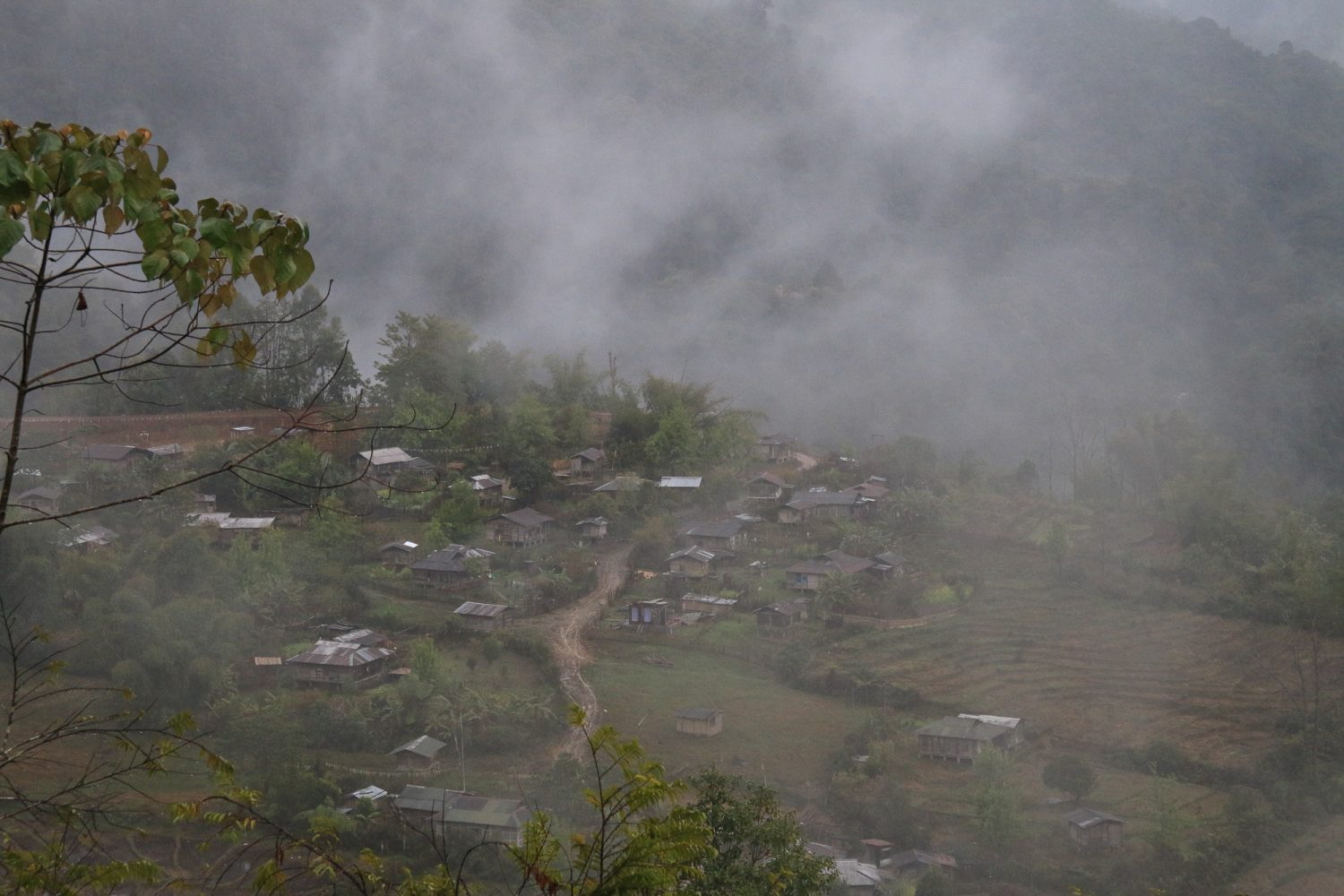
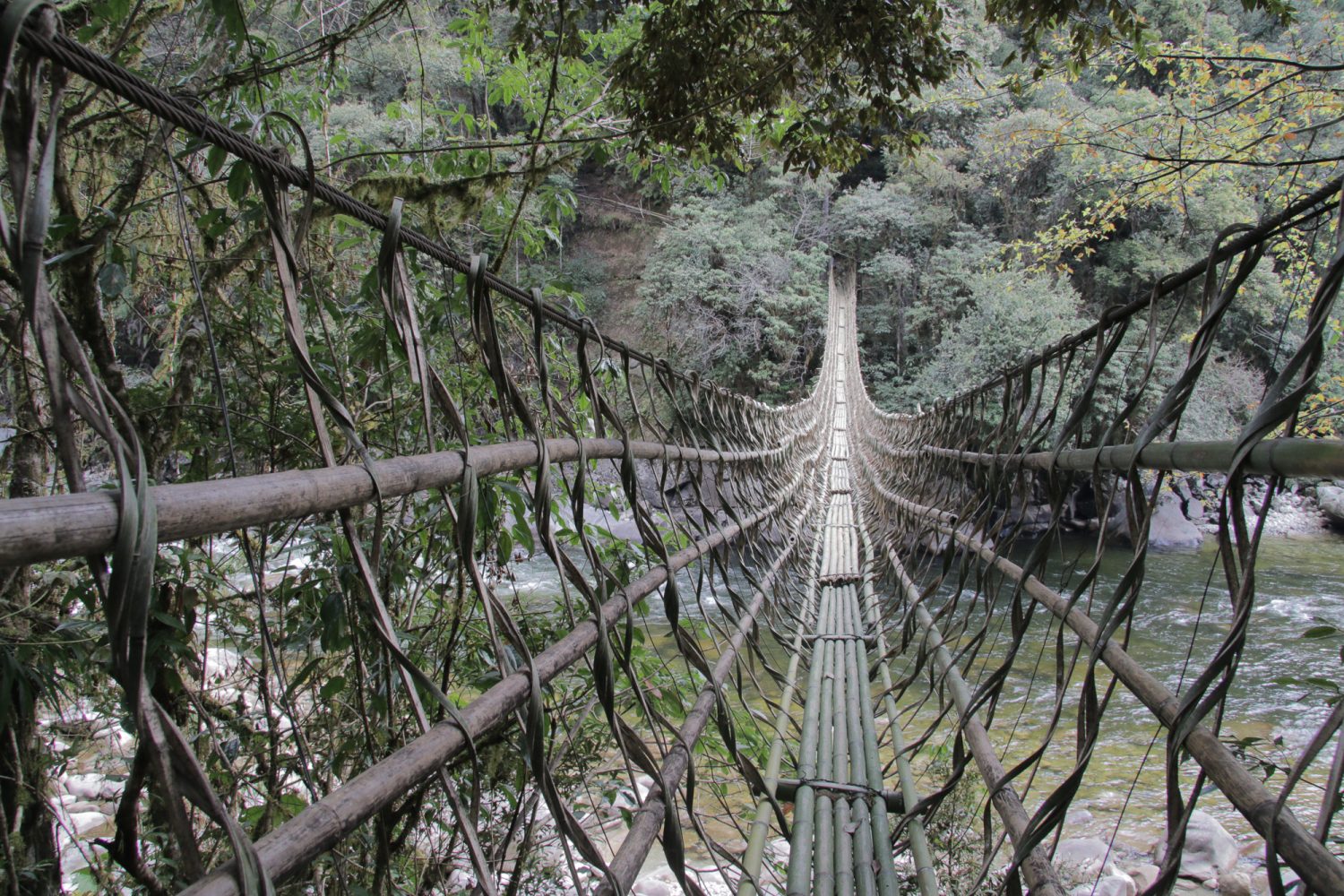
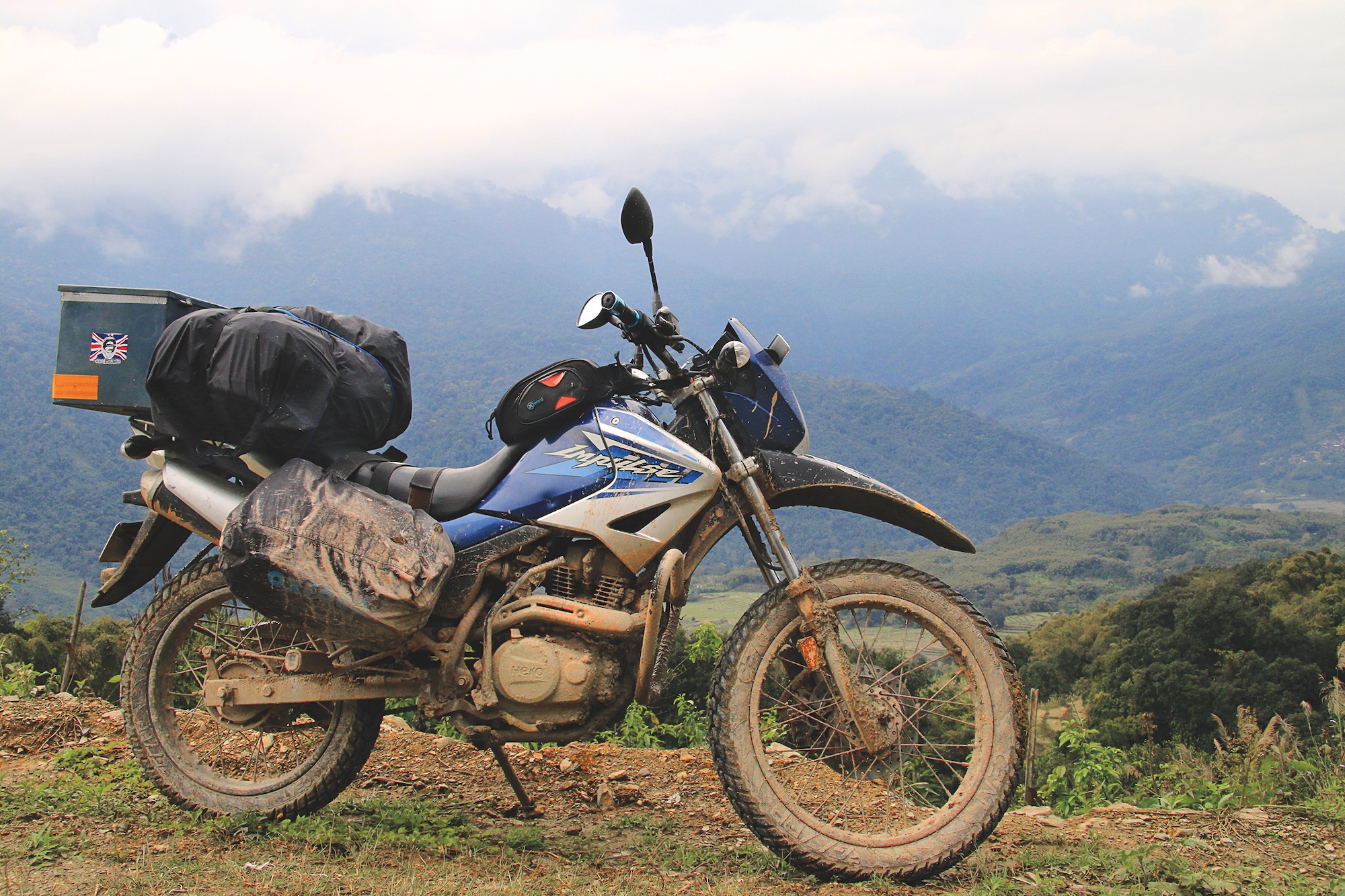
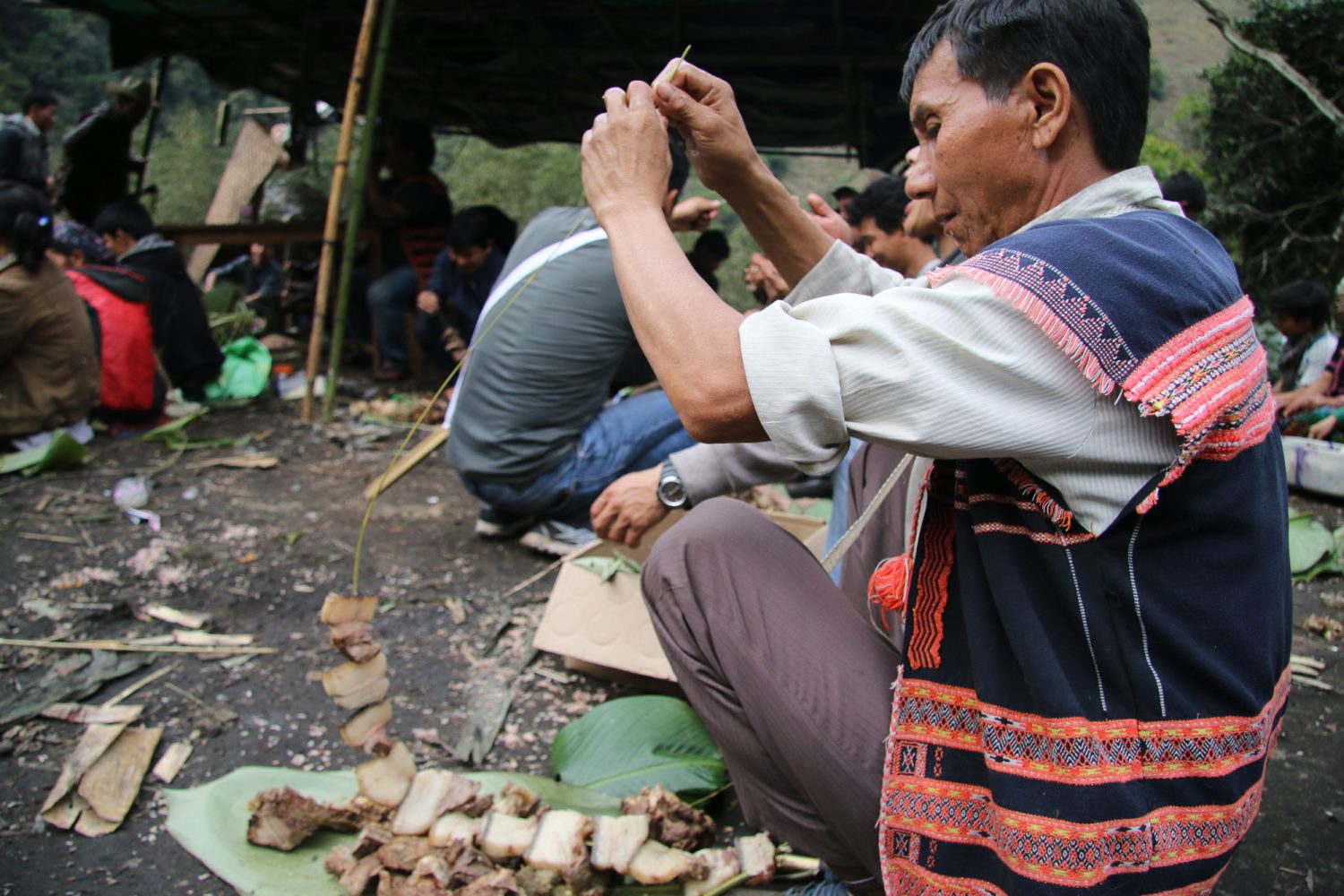
Nothing about travelling here was going to be easy. Arunachal Pradesh, meaning “Land of the Dawn-lit Mountains,” swells from the scalding plains of Assam to 7,000-metre Himalayan summits, its wild profusion of hills carved into steep, forbidding valleys by the main tributaries of the Brahmaputra. Home to almost every climatic zone on Earth, it also has the dubious accolade of being one of the wettest places on the planet. In 1926, whilst searching for rare orchids in these mountains, the British botanist and explorer Frank Kingdon-Ward summed up the weather perfectly when he wrote, “The frivolous might say there are two seasons; eight months wet, and four months damned wet.”
Prepared for every eventuality, my panniers bulged with gear: down jackets and a 4-season sleeping bag for the higher elevations, waterproofs, a tool kit for fixing the bike and a first aid kit for fixing me, emergency food supplies, a water filter, my lucky teddy bear.
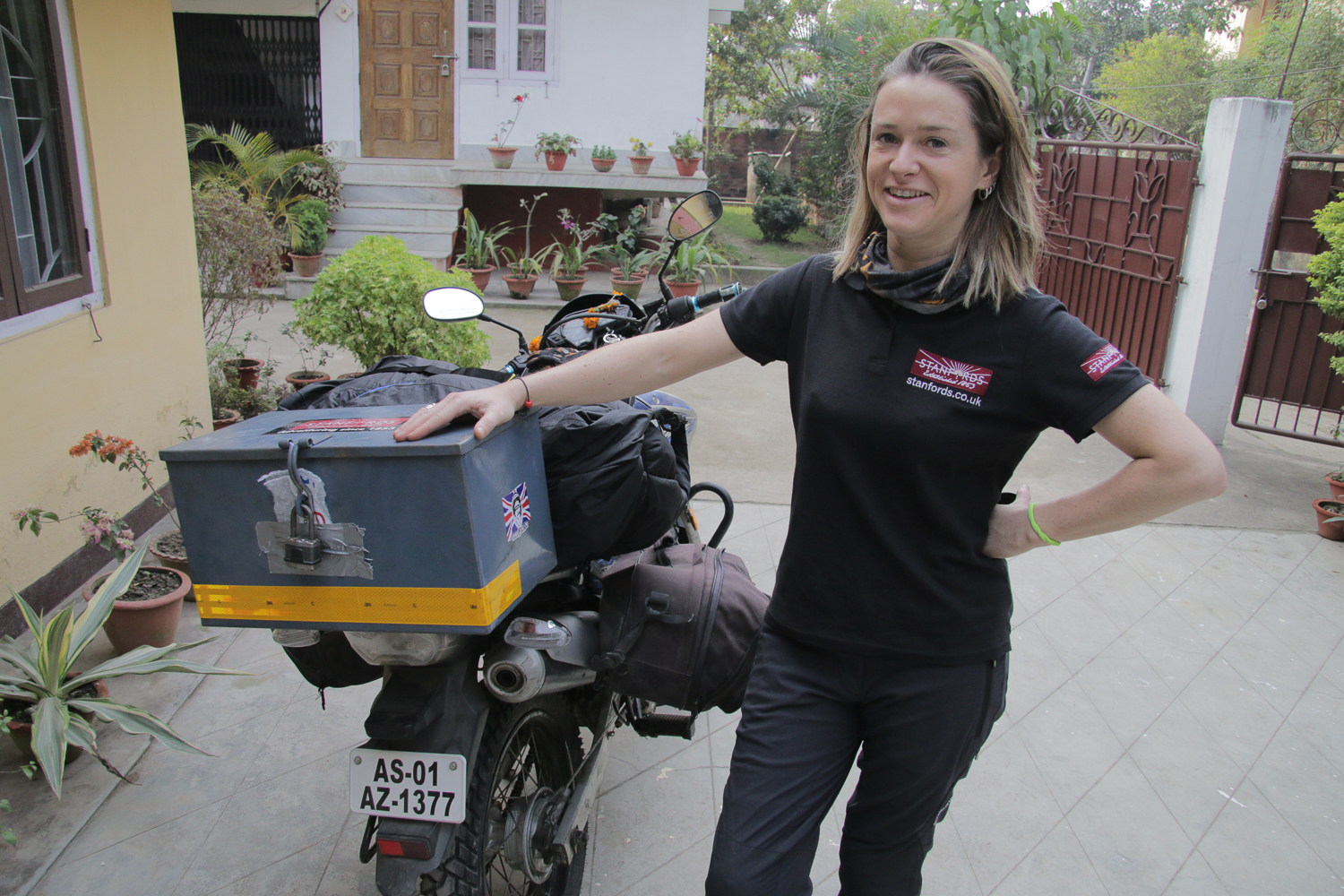
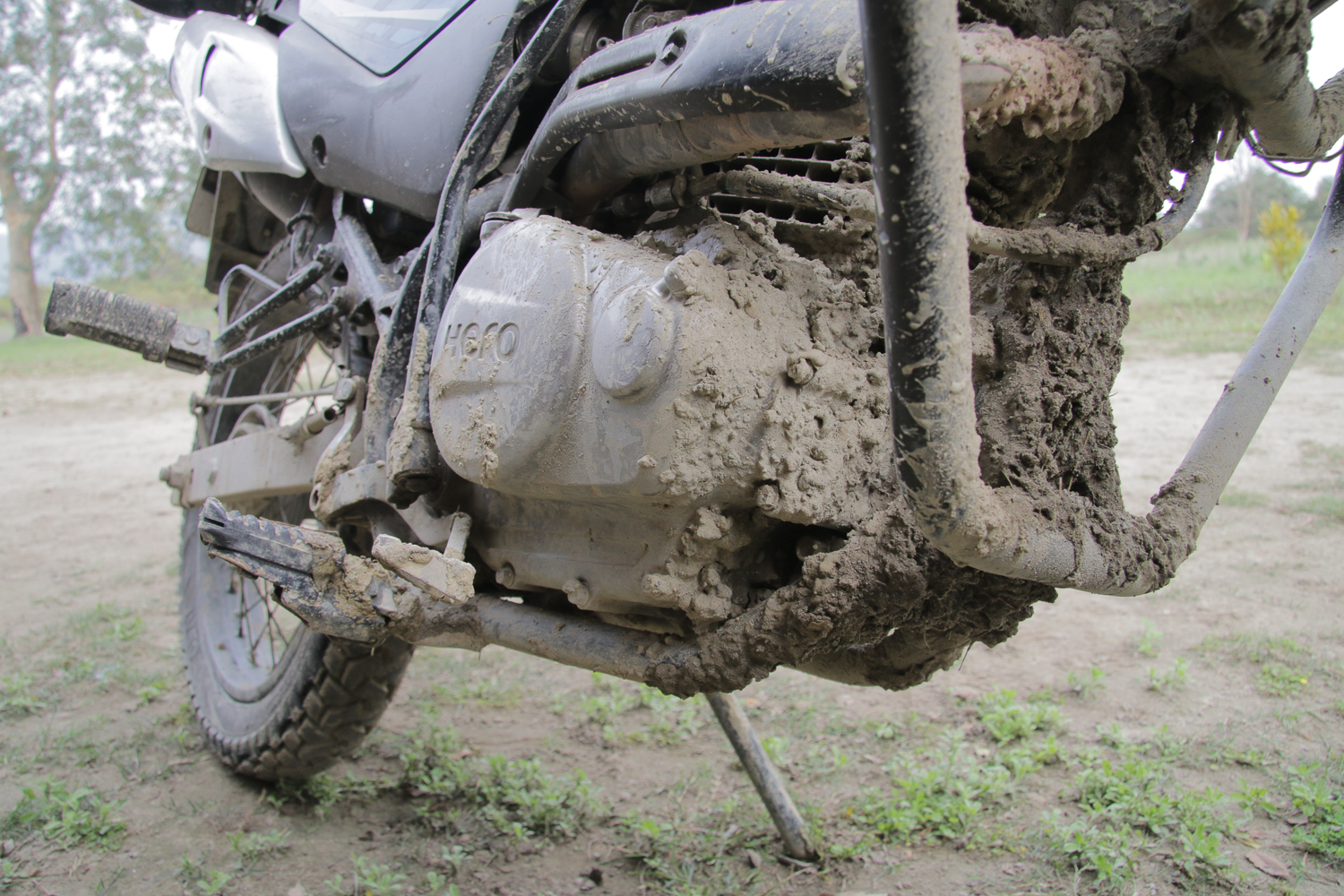
My first major challenge was the Mishmi Hills, the tangle of vast, trackless ranges abutting the state’s eastern border with Tibet. Known for harsh terrain and climate extremes, the hills had proved the nemesis of many a would-be conqueror and explorer. One, the British anthropologist Verrier Elwin, went as far as to call them “the most formidable in India.” Moreover, I soon discovered that my map of Arunachal—the best available in England—was largely fiction. The towns were misspelt, the roads in the wrong place. Nor was the offline mapping application on my phone much help since most of the area was an ominous white blank.
After three days of heavy rain, I reached Roing, a small town at the base of the Mishmi Hills. I intended to stay here for a day, to service my waterlogged Hero and wring myself dry, but landslides had closed the one road north up the Dibang Valley, and, until they were cleared, I was stuck.
While early explorers insulted the climate and inaccessibility of the region, it was nothing compared to their scorn for its inhabitants, the Idu Mishmi. Tibeto-Burman animists who migrated here from China some 800 years ago, the Idu Mishmi were known to early British explorers as a savage, quarrelsome bunch none too fond of foreign interlopers. The Tibetans thought them cannibals who feasted on the bride’s mother at wedding celebrations, while countless others insulted their character, hygiene, and “primitive” ways. But from the outset, I adored the Idu, and few more so than the owner of Roing’s Mishmi Hill Camp, the wonderful Jibi Pulu.
A puckish 50-something with cheekbones you could swing off and a thatch of black hair, Jibi rattled me around Roing in his old Suzuki Maruti, depositing me at the hearths of various friends and elders. There I’d sit for hours, cross-legged in smoky bamboo huts, entranced by stories about spirits and shamans. Whoever they were and whatever their age or profession, no one was in a hurry. Everyone had time to sit and talk and tell stories; their handsome, jovial faces lit up by the flickering flames.
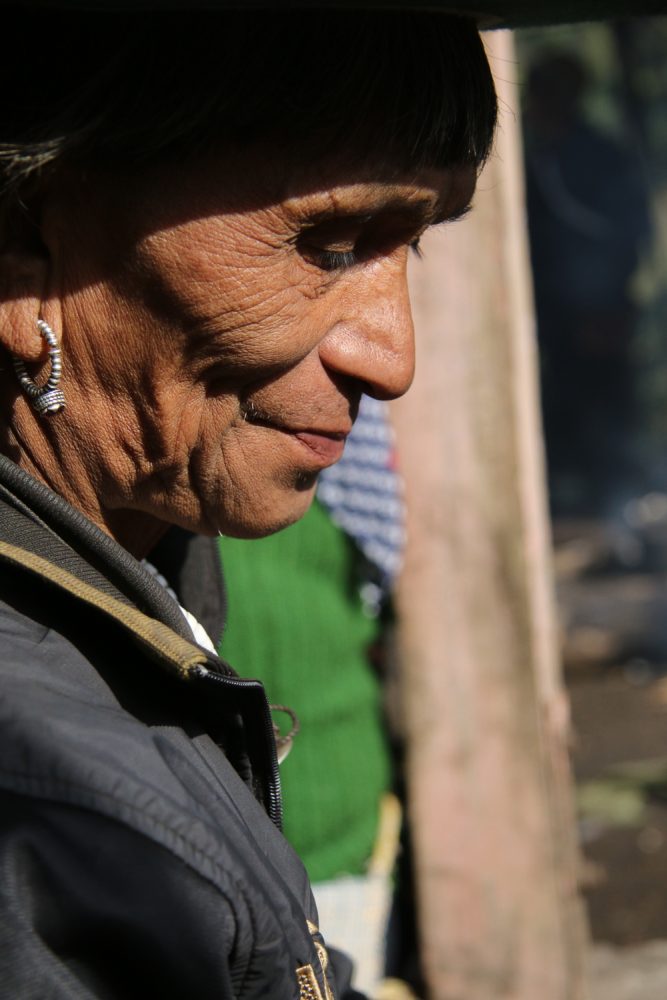
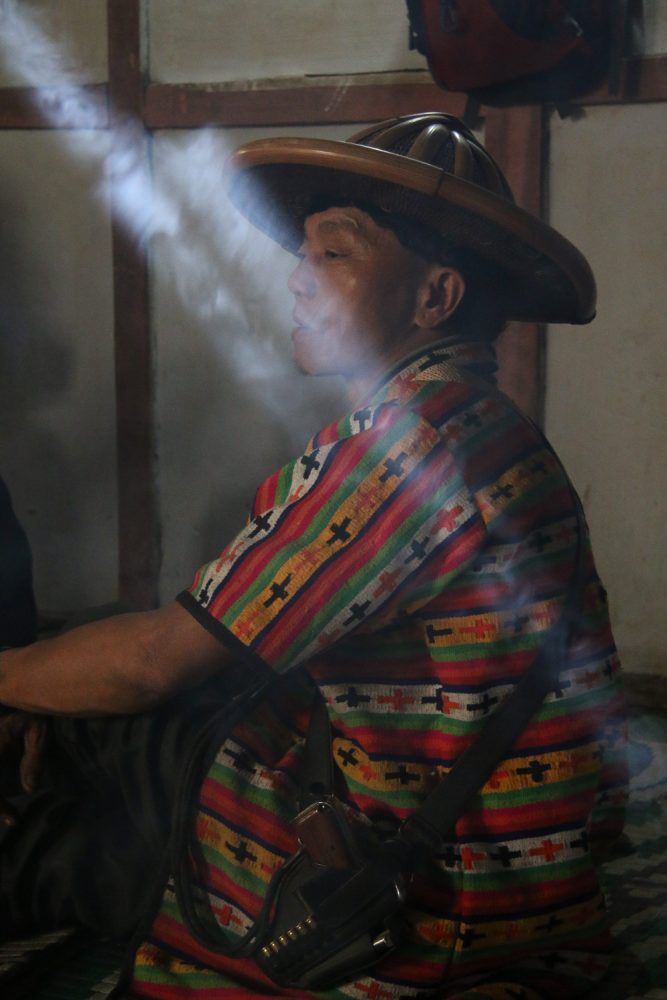
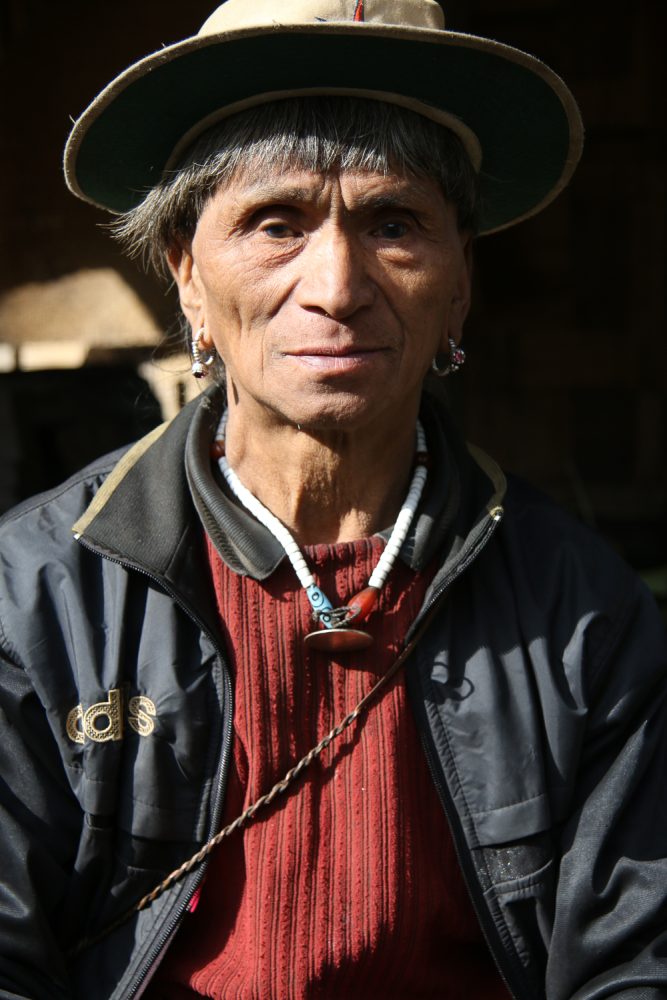
After four more days of rain, the news filtered through that the road north was open again. With more rain forecast and landslides likely, I decided to leave the Hero—which had been serviced for the grand sum of 200 rupees ($2.75)—with Jibi and travel up the valley by shared 4WD taxi instead. During the monsoon, it wasn’t uncommon for remote villages to be cut off for months at a time, with the army having to helicopter in supplies. Without the bike, I’d at least be able to walk south again if further landslides closed the road. It was a week’s walk back to Roing from the upper reaches of the valley; with the bike, I could be stuck up there far longer.
The night before I left, I heard that one of the Idu clans was about to hold a rare festival—a five-day celebration aimed at garnering the good favour of the spirits; it was taking place in a small village near the Tibetan border. I must go, Jibi told me; he’d send a message to someone in the village and ask them to look after me. All I had to do was take a shared taxi to Etalin, a settlement a full day’s drive north of here, and wait there for someone to pick me up. There was no phone reception in the village, and Jibi didn’t know how he’d get the message through to my unsuspecting hosts—I just had to reach Etalin and wait. It all sounded thrillingly tenuous.
At dawn the following morning, I squeezed into a battered Tata Sumo taxi with nine Idu, a trussed-up piglet, a basket of live chickens, and a widescreen TV. Soon we were climbing through lushly forested hills, the steering wheel spinning through the young Nepali driver’s skilled hands. It was the first clear day in weeks, and the steep slopes gleamed with dew and sunshine. Far below, the entwining fingers of the Deopani and Dibang Rivers shone like shards of silver on the plains. Occasionally, we’d pass a village, its huts encircling the slopes like crowns of thatch and iron. Around these, mithun, the semi-wild oxen endemic to the area, shied away from the verge as we passed—they are dark brown, muscular beasts with heads like battering rams and thick, conical horns.
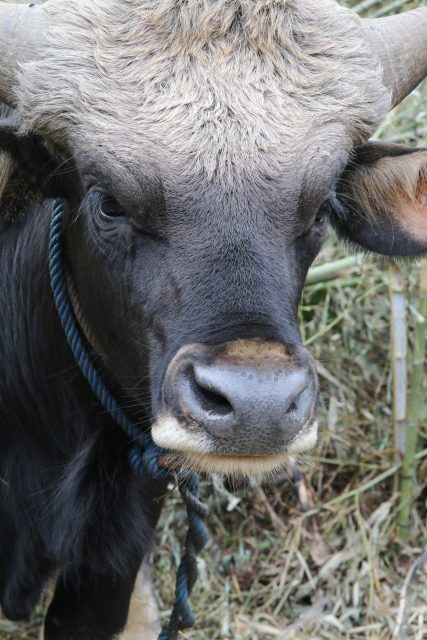
We reached Etalin at 4:00 p.m. Only 40 miles from Roing as the crow flies, it had taken us 10 hours to cover the 160 miles by road. I watched the taxi disappear in a cloud of dust, then sat on my rucksack to wait, curious as to what might happen next.
It was dark by the time a white Mahindra Pik-up roared into the village and pulled up beside me. “Hello, my name Sadhu Mihu. I come to take you to festival,” announced its driver, a broad-faced young Idu in green cords and gumboots, a machete hanging from his waist. How Jibi sent the message, I never did find out, but whether by smoke signals or telepathy, it had clearly found a way through. Minutes later, I was bumping along a dirt track with this mystery tribesman. Wherever we were going, and whatever the next few days held in store, I felt sure it was going to be a marvellous adventure. I hoped my instinct wouldn’t let me down.
“Madam, the guest is god,” said Sadhu as we reached the village an hour later. “I am honoured to have you here.” Inside his simple bamboo-and-wood abode, the festival warm-up party was in full swing. A roistering, garrulous crowd was huddled around a central fire, the light of the flames falling upon half-drunk whisky bottles, opium pipes, pistols, and the tips of elephant-bone knife handles. Unable to speak any English, they welcomed me with curious looks and smiles. One man, his long ebony hair tied in a knot under a wide-brimmed cane helmet, thrust a glass of whisky into my hand with a grin.
Over the next few hours, a stream of villagers drifted in—all of them, said Sadhu, coming to look at the “Britisher.” With Arunachal Pradesh closed to foreigners until 1998 and only a handful of outsiders visiting these wild eastern hills each year, some had never seen a Westerner before. Emboldened by alcohol, one older man, a bandolier of bullets slung across his embroidered waistcoat, said, “I luff you,” then burst into peals of laughter.
Several whisky-sodden hours later, I unrolled my sleeping bag on the floor of the communal bedroom and fell happily asleep, the sound of voices and laughter drifting through the wall.
At dawn, Sadhu led me to a bamboo hut where three male shamans, or igu, sat beside a fire, singing to the spirits in eerie, contorted voices. They were offering up the souls of the soon to be sacrificed mithun, Sadhu explained, their trance states achieved through singing, the beat of small handheld drums, and the power of their guiding spirits. In the middle sat the chief igu, a gentle-looking man of indeterminate age, his long black hair tied in the traditional Mishmi knot. The whole scene felt closer to Alpha Centauri than Delhi.
“I’ve seen igu eat hot coals, jump through fires, and start talking in other languages,” Sadhu told me. “And I’ve heard about them bringing people back from the dead. They’re the glue that holds our society together, but they’re dying out. Without them, how can we survive?”
After a while, the chief igu walked to where six male mithun were tied to trees, chanting as he brushed their backs with a leafy branch. Then, in turn, each animal was slaughtered, men bringing their swords down on their muscular necks. The mithun fell silently to the ground, but it was an agonising 20 minutes before they let out their final, rasping breaths and died. As much as I’d felt it polite to watch, the scene tore at my vegetarian sensibilities: I could feel the bile rising in my throat, my stomach churning in revolt. Gagging, I slipped away and vomited behind a tree.
Amidst much laughter and jollity, the mithun were skinned and butchered. Sadhu, my gentlemanly host, squatted as he cut out the tongues and strung them onto sharp threads of bamboo. Meanwhile, the women stirred great vats of rice and handed around bamboo flagons of yu, lethal rice wine. Still feeling a little queasy, I joined a crowd of them and self-medicated with some of the milky-coloured wine. By noon I’d had several flagons and was communicating in fluent nonsense with a diminutive, puckered old lady who had an uncanny resemblance to ET. She sucked her toothless gums and laughed at everything, lost in happy senility.
The rest of the day passed in an orgy of drinking, butchery, and carousing, like an Idu version of Burning Man, just with more blood and gore. At around 4 p.m., by which time so much rice wine had been consumed it was a miracle anyone was still standing, a prodigious feast was served. Several hundred Idu sat in rows on the ground while lines of men and women handed out palm-leaf plates, piling them with armfuls of boiled mithun and rice. After witnessing the earlier slaughter, I settled for just the rice.
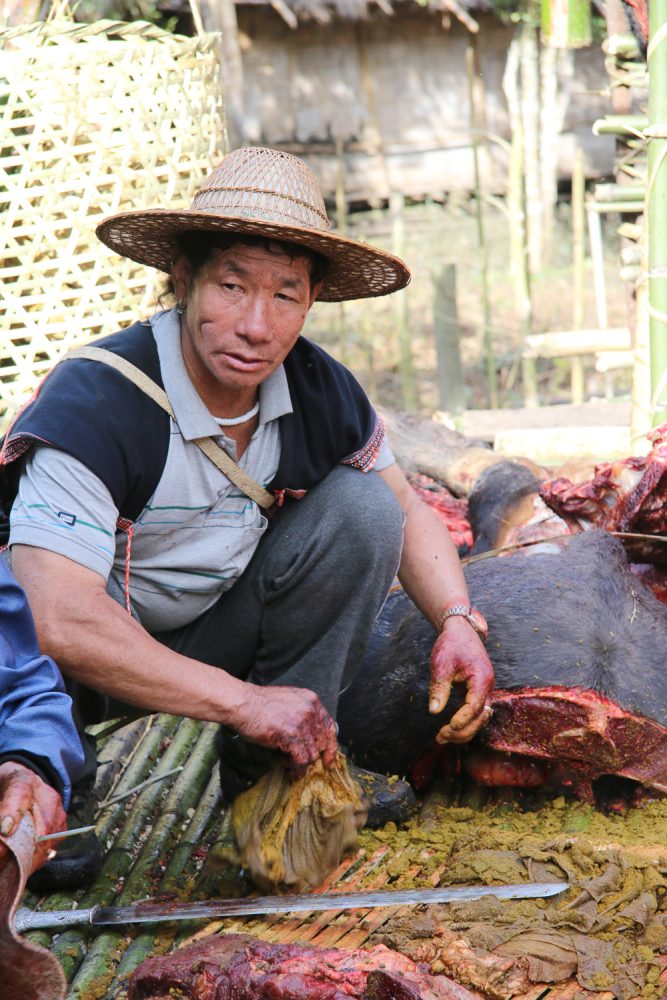
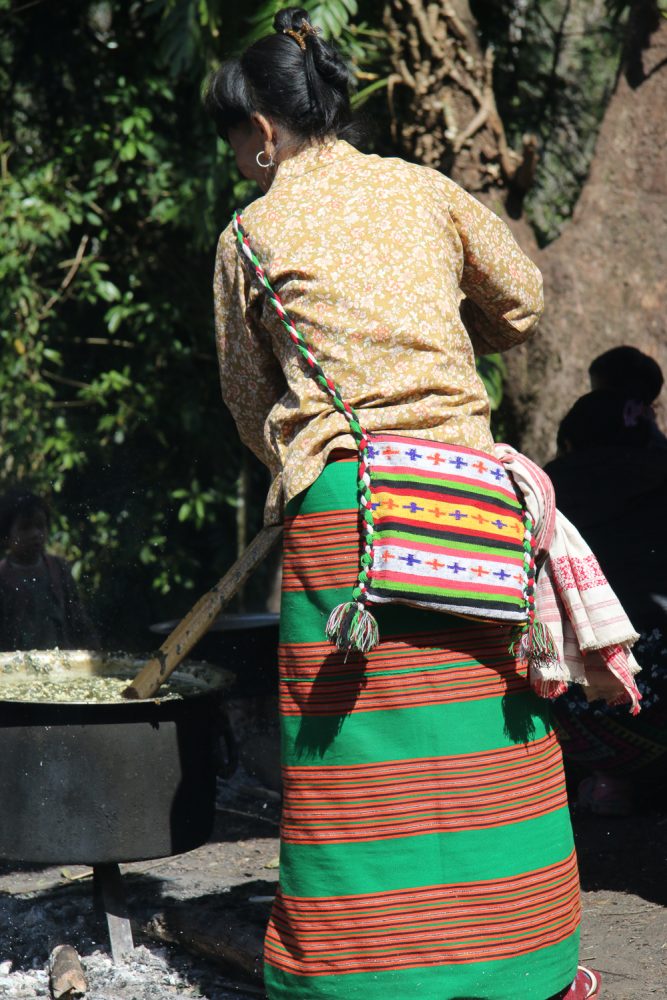
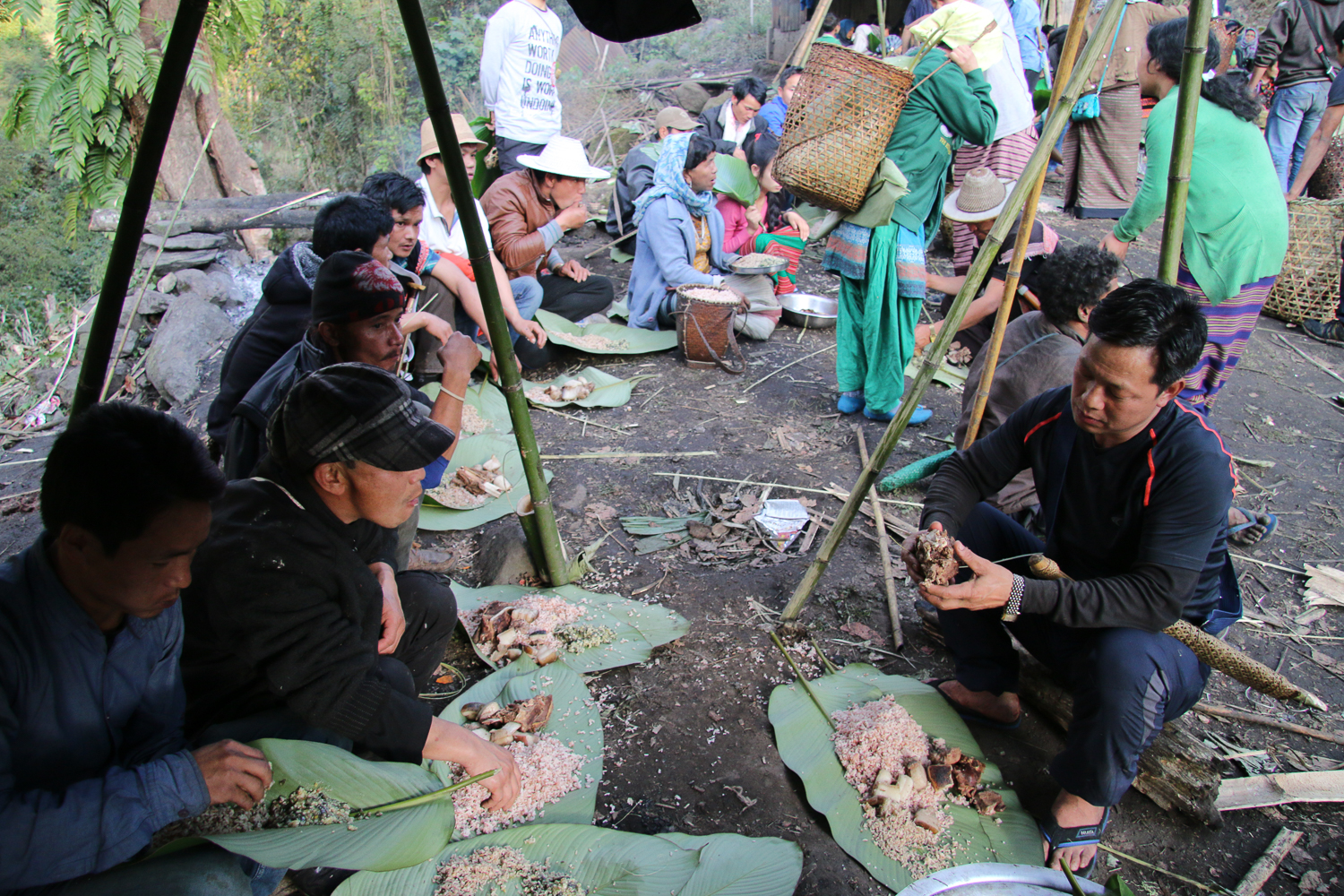
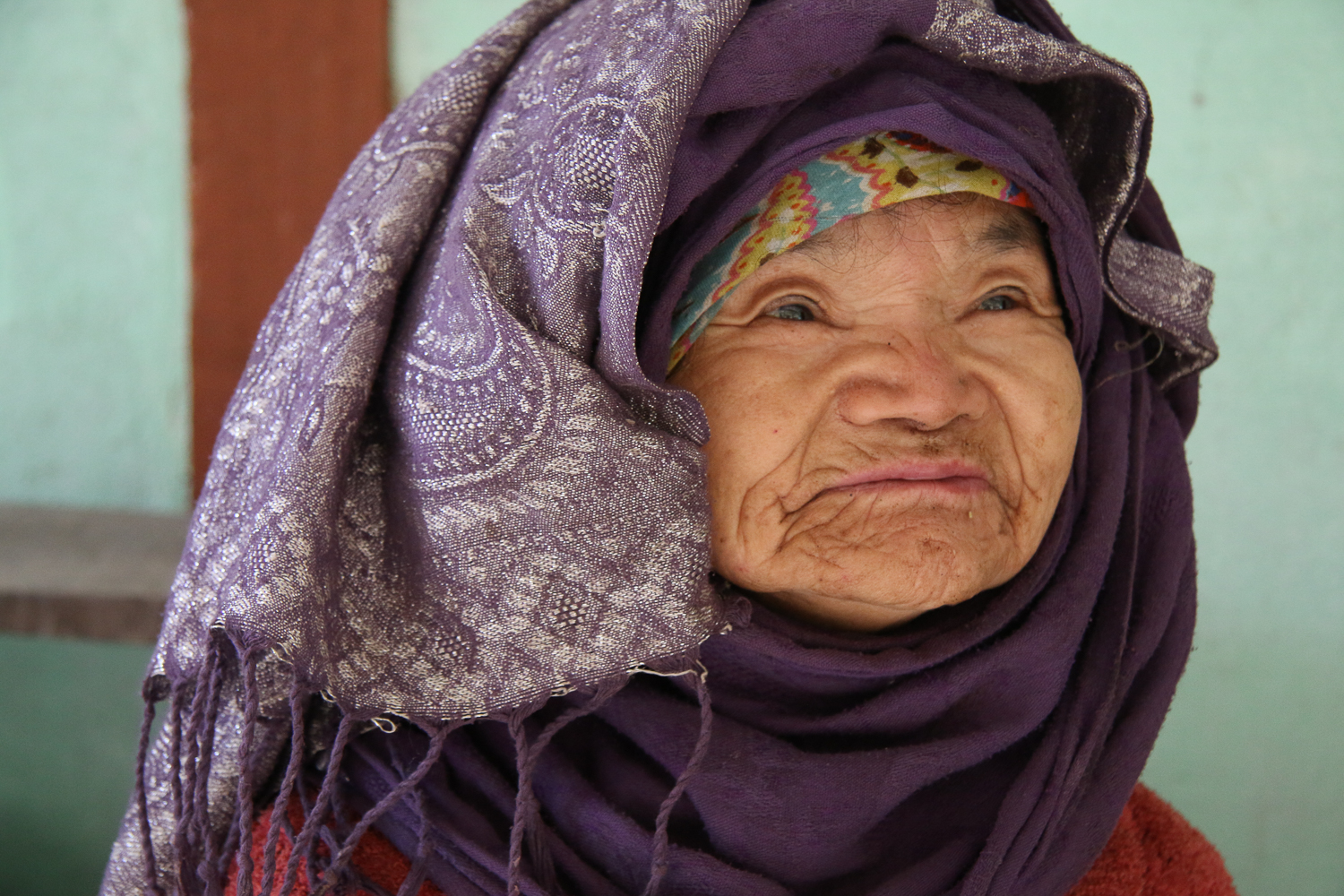
After nightfall, everyone crammed into the shamans’ hut to watch the chief igu dance: a slow, shuffling movement with his head bowed and his bare feet turned out at angles. Now he wore a richly embroidered red skirt, a headpiece of cowrie shells hung with tufts of a yak tail, and a necklace of yellowed tiger teeth, some six inches long. At his feet sat a rapt audience, their faces lit up by wide, joyous smiles.
Watching the igu dance, an old man snoring at my feet, I felt blissfully content. Solo journeys are an exercise in unshackling yourself from the safety and routine of everyday life at one end and letting go of your fears at the other. And on every venture, there’s a moment when the bonds are loosed, when at once the journey inhabits you, and you inhabit it. Now, a month into my travels, amongst these welcoming strangers, I’d reached that moment. The longer the trip progressed, the more I noticed a bubbling lightness of spirit, as if the odyssey was freeing me from a corset of expectations, allowing happiness to rise like a sap. Later, walking back to Sadhu’s, I stopped to gaze at the sparkling vault above, its magnificence and my jubilation moving me to tears.
I wanted to travel north of here to Anini, the last town in the Mishmi Hills. With China claiming much of Arunachal Pradesh and the border still bitterly disputed, I didn’t know how freely I’d be able to move up there, so close to the boundary line. But that forbidden frontier held an almost mystical allure: I was determined to see how far I could get before mountains or the military forced me back.
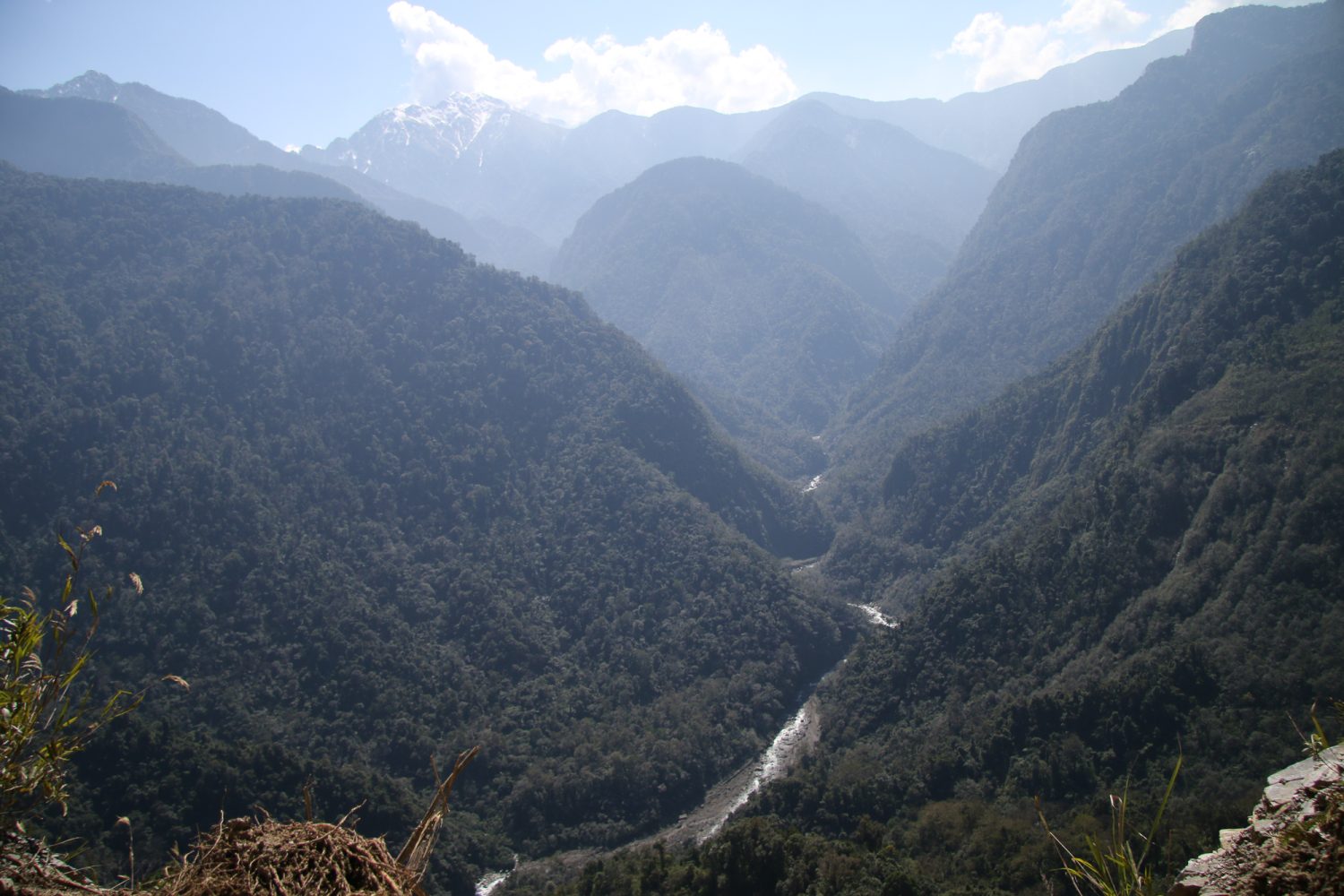
My Sumo taxi jolted up the hill into Anini as the following day faded to another clear, stelliferous night. The Inspection Bungalow, a mouldering yellow guesthouse normally reserved for visiting government employees, had one room left, and, after some persuasion from a motherly fellow passenger, they allowed me to have it. For 300 rupees ($4.10), I had two single wooden beds, a cold concrete floor, curtains as thin as rice paper, and a patient congregation of fat, black spiders.
A phone call to my friend Jibi in Roing confirmed I wouldn’t be able to explore this sensitive border area without a local guide. “I’ll find you someone,” said Jibi, his voice barely audible over the crackly line. True to his word, a lanky young Idu arrived the next morning, leaping off his motorbike in a cloud of aftershave. “Good morning, Ma’am,” he beamed, the sun glinting off his freshly waxed hair. “My name is Edi. Mr Jibi send me.”
Several fast-talking phone calls later, Edi had borrowed me a battered old 125-cc Bajaj Pulsar with sticky gears and a dodgy clutch, and we were winding north with a vague plan to ride to the end of the road and see what happened. Beside me rode Edi, his grey nylon trousers and black leather shoes more suitable for a day at the office than a Himalayan adventure. But he was an Idu, these mountains were in his blood, and he didn’t need all the gear us soft Western travellers lug around.
It was a drab day, and the sky was smeared with dark clouds. But I was in high spirits, exhilarated to be riding towards the end of the road, to be so near Tibet. Elevation and the cold had shaped the landscape differently here, and the luxuriant emerald jungle of the Lower Dibang Valley had morphed into tonsured hills, their bald copper pates ringed by slopes of thick green coniferous curls. Occasionally there’d be a single hut on a hillside, grand in its startling isolation, an ancient warren of footpaths embossed onto the surrounding slopes like lugworm casts on a beach. Below thundered the Mathun River, secure in its wooded gorge. If it weren’t for the frame of stately white peaks, it could have been Scotland in October.
After an hour, we reached the end of the tarmac road. I was expecting a checkpoint patrolled by heavily armed soldiers telling me I wasn’t allowed any further. But there was no checkpoint or soldiers, just two drunks lolling on a bench outside a wooden hut. Beyond, a footpath wound alluringly across the tawny hills.
“Ma’am, we have a choice,” said Edi, after talking to the drunks for a few minutes. “We can go back to Anini, or we leave the bikes with these people and walk. There’s a village half a day’s walk away; we could try and reach it.” The two drunks looked at me, waiting for the verdict. “Let’s go!” I replied, unable to resist the lure of adventure. It was midday; if we walked fast, we could reach the village before dark.
Ten minutes later, we’d wheeled the bikes behind the hut, pocketed the keys, and told the men we’d be back in a few days. Shouldering our rucksacks, we set off down the hill to the river at a brisk, jubilant pace, the inebriates shouting after us, “Be careful. They’re uncivilized people up there.”
What an afternoon we had. We strode across open hillsides, our feet swishing through dry, yellow grass, then dipped into elfish dells where gnarled branches were hung with ragged pennons of moss. And every time we emerged into the open again, there were the white mountains, ranged like guardians across the northern horizon.

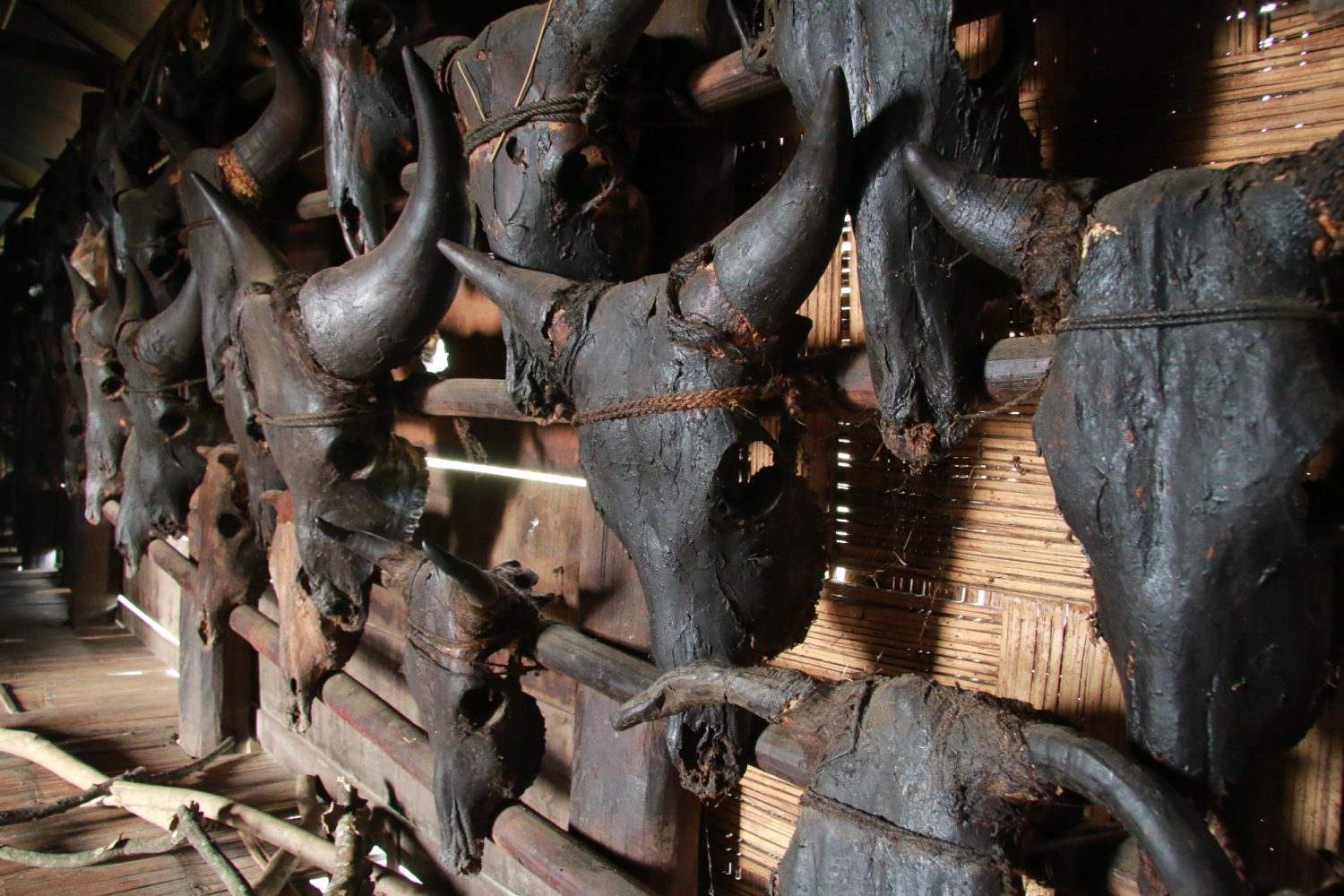
It was six o’clock and almost dark when we reached a single bamboo longhouse on the edge of a forested hill. A glance at my phone showed we were at 5,600 feet above sea level and just 10 miles from Tibet. Edi disappeared into the hut, emerging a few minutes later with a surprised-looking older couple. “These my fifth cousins, Kormu and Mishing.” Anywhere else, I’d have been surprised at such a revelation, but by now, I’d learned that almost all the Idu were distantly related.
Kormu’s threadbare tracksuit was caked in years of grime, his calloused hands engrained with ash and dirt. His wife, Mishing, was tiny and birdlike, her sweatshirt and sarong equally soaked in dirt. They seemed shy and extremely surprised to see us, but they were Edi’s cousins, so they welcomed us in for the night. “They never meet foreign person before,” said Edi, as we sat cross-legged by the fire. “They very surprised to see you here and very happy.”
I remember that night as one of the funniest of my entire journey. In my mind’s eye, I can see the hut clearly: the woven bamboo walls hung with a plastic clock, an old Indian National Congress election poster, and a few bamboo baskets—the old couple looking on with their work-blackened hands. I can hear the clack of mugs, Mishing’s girlish laughter, and Kormu’s rasping chuckle.
We opened a bottle of rum I’d packed, and the more we drank, the more Kormu and Mishing’s initial shyness gave way to excitement. They were so happy to meet me, they said, to actually see a foreigner for the first time. They couldn’t believe it. The only outsiders who came here were Indian Army patrols who stole their cooking utensils and drank their yu. By the time the rum was half empty, Kormu was a staunch Anglophile. How wonderful the British were! How kind! Everything made by Britain and Bhutan was of fantastic quality, unlike the rubbish made by India, China, and Nepal. They were sorry they didn’t have more to give me, that their house was so simple. But I couldn’t have been happier and told them so repeatedly.
Afterwards, they fell asleep under thin blankets, with logs as pillows, and I lay there listening to the crackling embers, the gurgling river, and Kormu’s drunken mutterings. It was one of the most enjoyable days of my life.
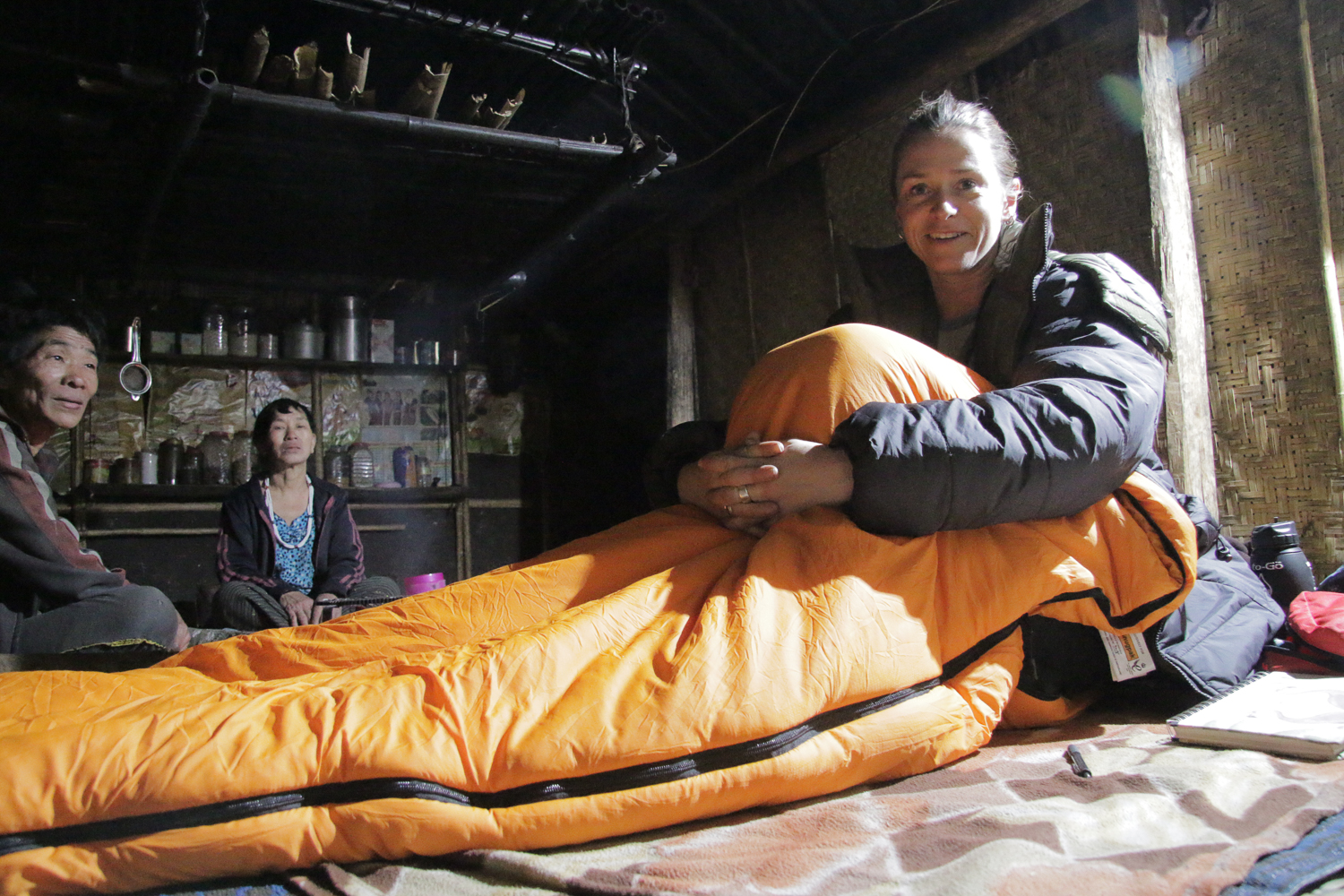
In the morning, we hugged each other warmly goodbye. They’d miss me, they said, and asked when I was coming back. Then we all waved and shouted ji pra ji, stay well, until we were well out of sight. I walked back to the road with aching legs and a joyful heart, smitten by the Idu and their wild, untamed land. Around us, the world seemed equally effervescent. Wisps of cloud sailed across an azure sky, the sun shone warm on my face, and dragonflies darted through the long grass.
“What an adventure, ma’am,” exclaimed Edi, springing along beside me with his face split into a smile. I couldn’t have agreed more.
Our No Compromise Clause: We carefully screen all contributors to ensure they are independent and impartial. We never have and never will accept advertorial, and we do not allow advertising to influence our product or destination.


